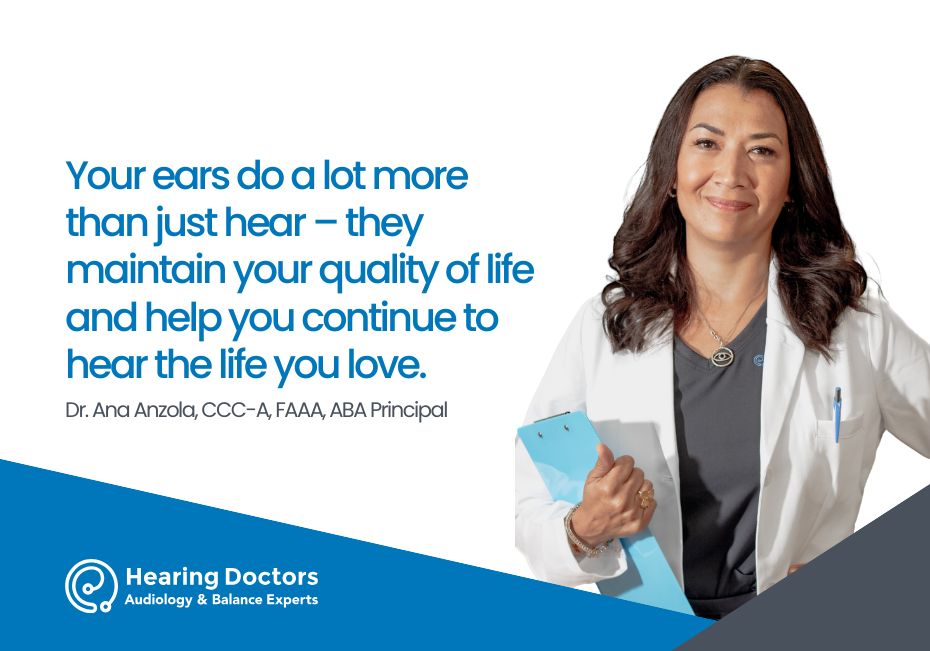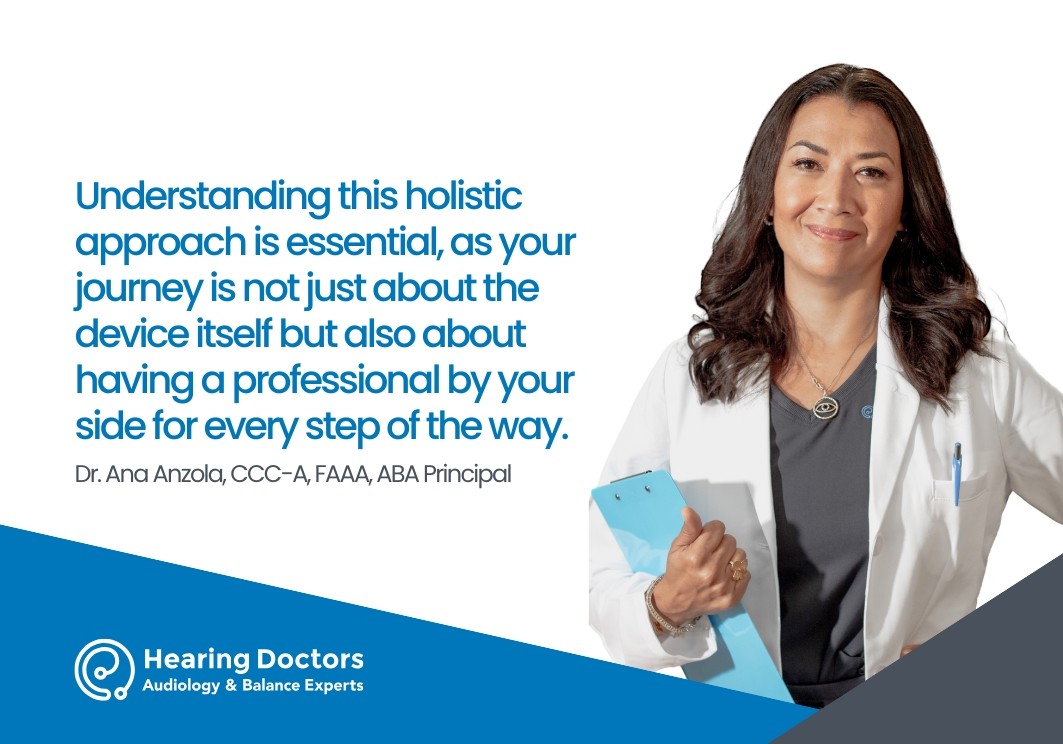Jan 22, 2016
Dr. Ana
Anzola, CCC-A, FAAA, ABA Principal
At the start of each year, many of us make commitments to eat healthier, exercise more and watch less TV. This year, make sure your new years resolutions include some “New Ears Resolutions” and commit to keeping your hearing healthy too.
Get A Baseline Hearing Test
Most adults haven’t had their hearing tested since they were in grade school. If that includes you, it’s time to book an appointment with an audiologist for a baseline hearing test.
As you age, the chance of developing presbycusis (age-related hearing loss) increases. The National Institute on Deafness and Other Communication Disorders (NIDCD) estimates that hearing loss affects 2 percent of people between the ages of 45 and 54, and up to 50 percent of people over the age of 75. With a baseline hearing test, your audiologist will have a reference point to check your hearing from year to year, and any changes can be detected early.
Stop Using Cotton Swabs In Your Ears
Cotton swabs are great for applying makeup and cleaning between the keys on your computer, but they are not meant to clean dirt and wax out of your ears. When you use a cotton swab, you could be damaging your ears in several ways:
Pushing earwax deeper into your ear. Cotton swabs can push the wax up against your eardrum, leading to earaches and possibly conductive hearing loss.
Pushing the swab in too far. Pushing the swab in too deep and with too much force can lead to bruising or rupturing of your eardrum.
Opening up your ears to germs and infection. Earwax is your body’s natural defense against things like dust and bacteria, and it also protects your ear canals from being irritated by water.
Ear canals are self-cleaning. You can gently wash the outer ear with a soapy washcloth, but if you notice a buildup of earwax, it is best to have a doctor remove it.
Reduce Your Exposure To Loud Sounds
Noise-induced hearing loss (NIHL) is the most common type of hearing loss, and it’s completely preventable! NIHL can occur at any age from either a one-time loud sound or the cumulative exposure to loud sounds over time, such as loud music in your MP3 player or being exposed to continuous loud sounds on the job.
Turn The Volume Down
The National Institute on Deafness and Other Communication Disorders recommends keeping sounds below 75 decibels, especially for prolonged exposure. Here are some examples of decibel (dB) levels in everyday life:
Whisper: 30 dB
Normal conversation: 60-65 dB
Toilet flushing:75 dB
Telephone dial tone: 80 dB
MP3 player at maximum volume: 105 dB
Loud rock concert: 120 dB
If you have trouble following conversations (especially in noisy environments) or need to keep turning the volume up when others can hear just fine, it’s time to get your hearing checked. Studies show that early detection and treatment of hearing loss leads to an increased quality of life.
Your hearing is a vital part of your communication and social interaction. Why not make this your year of healthy hearing? Call us today to schedule a hearing assessment.
Related Articles
Popular Blogs

Jun 3, 2025
Dr. Ana
Anzola, CCC-A, FAAA, ABA Principal
Understanding Types of Hearing Loss: Sensorineural, Conductive, and Mixed

May 21, 2025
Dr. Ana
Anzola, CCC-A, FAAA, ABA Principal
What Impact Is Artificial Intelligence Having on Hearing Aid Technology?

Apr 28, 2025
Dr. Ana
Anzola, CCC-A, FAAA, ABA Principal
Do You Think You’re Too Young for Hearing Loss?

Apr 15, 2025
Dr. Ana
Anzola, CCC-A, FAAA, ABA Principal
The Best Hearing Aids in 2025: Insights From a Doctor of Audiology


